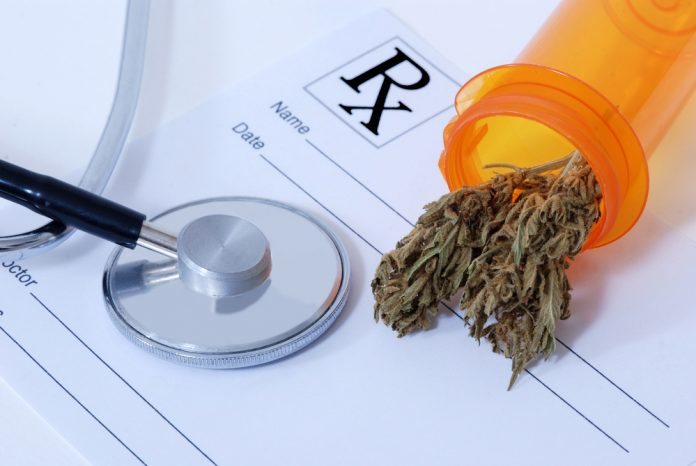UNITED STATES, JULY 21, 2019 (ASSOCIATED PRESS) – Utah officials preparing to launch the state’s medical marijuana program next year face mounting pressure from county attorneys to scrap plans for a state-run dispensary system and lingering scrutiny from companies rejected for growers’ licenses.
The state announced Wednesday it has dismissed appeals from six companies that were denied licenses to grow medical marijuana for Utah’s program, shutting down allegations that the selection process was hasty and biased.
The companies still have one more avenue for appealing to the state, and at least one — North Star Holdings LLC — vowed to keep protesting a process it considers unfair.
“We’re going to take it to court. We’re not going to stop until we do what’s right for Utah cannabis patients,” said Welby Evangelista, the company’s president.
News of the dismissals came as county attorneys expressed concern that a planned state-run dispensary system would put public employees at risk of being prosecuted under federal drug laws. That has led state officials to acknowledge they need to consider new ways to distribute medical marijuana.

On Tuesday, Salt Lake County District Attorney Sim Gill and Davis County District Attorney Troy Rawlings said current plans to use local health departments throughout the state as pickup points for medical marijuana would make the employees de facto drug dealers.
Marijuana is banned at the federal level, though a congressional amendment blocks the Justice Department from interfering with states’ medical marijuana programs. Still, some Utah county prosecutors say distribution is risky.
“There’s no exemption for a state employee to distribute marijuana,” Rawlings said.
Advocates who pushed for last year’s voter-approved law legalizing medical marijuana said they are pleased the state may go back to the plan outlined in the ballot initiative for a network of private dispensaries.
That was scrapped when Utah lawmakers made sweeping changes to the ballot measure, and built in the distribution system that uses local health departments.
More than 30 other states allow medical marijuana in some form. But none have state-run dispensaries because they fear the potential legal fallout, said Chris Lindsey, senior legislative counsel with the Marijuana Policy Project, a Washington-based pro-legalization advocacy group. Utah’s proposal, as it stands, is unique and could set a precedent for other states if successful, he said.
The plan allows for seven private “cannabis pharmacies,” with a state-run “central fill pharmacy” distributing the remainder of medical marijuana orders through each of the state’s 13 local health departments.
Medical marijuana will be available for purchase only by patients with certain medical conditions. Residents can buy the drug at one of the state-selected dispensaries after obtaining a patient card from their medical provider.
Desiree Hennessy, director of the Utah Patients Coalition, the main medical marijuana advocacy group that backed the ballot initiative, said she’s grateful legislators are recognizing issues with distribution and finding new ways to make it work. In light of counties resisting the “central fill” concept, Hennessy said she will push state officials to provide more private dispensaries to help distribute the drug.
Republican Senate Majority Leader Evan Vickers said the goal of the central-fill pharmacy was to reach patients in rural communities.
He said state leaders have been hearing prosecutors’ concerns for months and are exploring alternatives. Possible solutions include modifying how cannabis would be delivered to local health departments, cutting counties out of the distribution process, and replacing the state’s “central fill” system with an additional privately owned dispensary.
State officials are expected to meet later this month to discuss and enact changes to the law.
Companies rejected for a grower’s license have criticized state officials’ lack of transparency and bias in implementing Utah’s medical marijuana program.
One of the appeals was submitted by Tintic United Bioscience LLC, which accused the Department of Agriculture of violating a “blackout period” where state health officials were not to interact with applicants. The appeal pointed to a photo tweeted by the department on June 21 showing commissioner Kerry Gibson smiling next to Mike Standlee, the registered business agent of True North of Utah LLC, one of the companies awarded a grower’s license.
The state said in its decision Wednesday that the photo was taken before the department knew the company would apply and that Gibson wasn’t on the committee that chose the growers. Additionally, Gibson was visiting the hay facility at True North, a large agriculture producer, as part of his normal functions, state officials said.
Another appeal from Pure UT accused the state of having a bias toward rural growers, saying seven of the eight companies are outside urban areas. The same firm called the decision to choose eight companies, rather than the 10 allowed by law, an “uninformed and anticompetitive” decision.
Utah’s rejection of the appeal didn’t address the alleged rural bias, instead defending the right to choose only eight companies and calling the process fair.
Gill, Salt Lake County’s district attorney, said he’s confident state officials will craft a new distribution plan that excludes local health departments.
“Whatever solution they come up with, frankly, I don’t care as long as it gets medical cannabis to patients and removes us from the equation,” he said.







